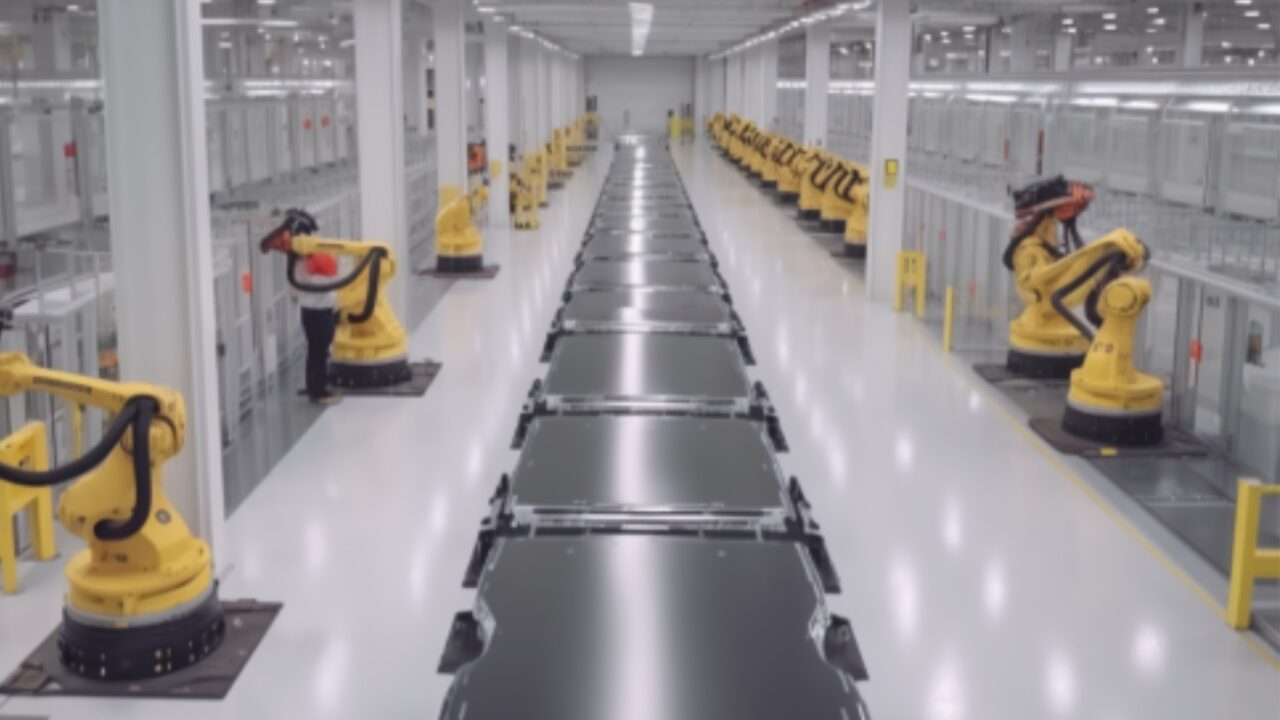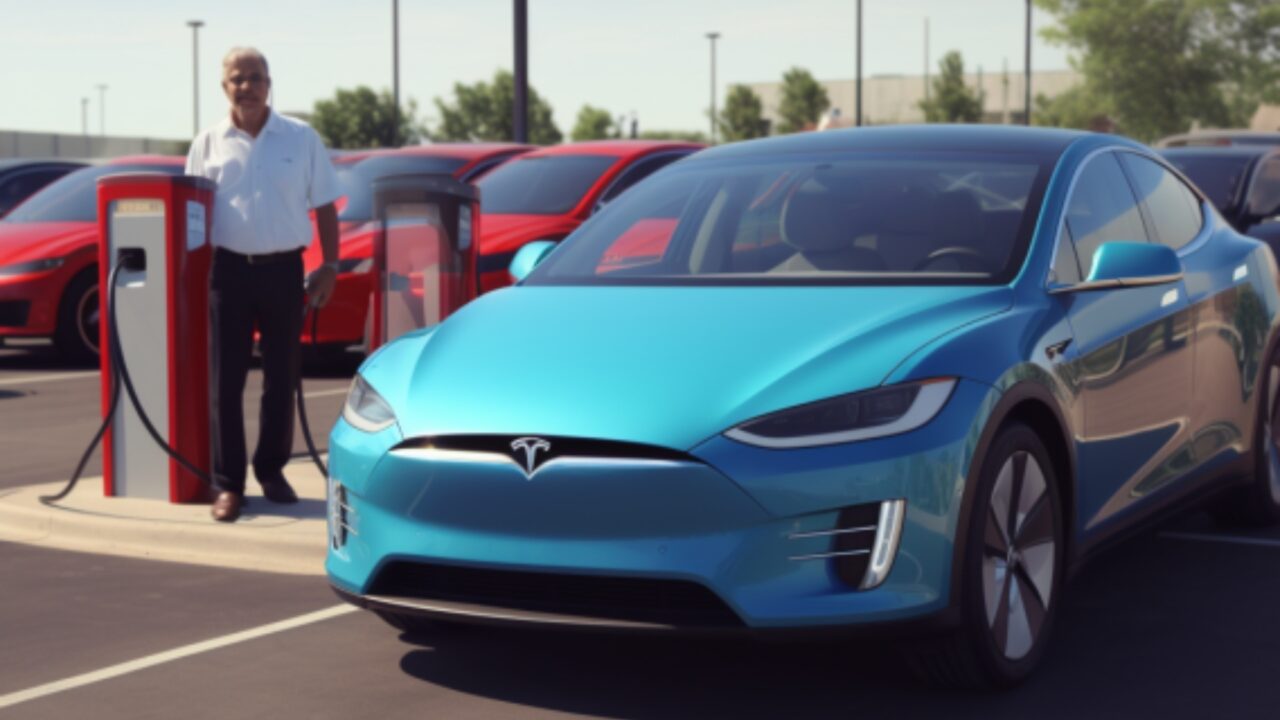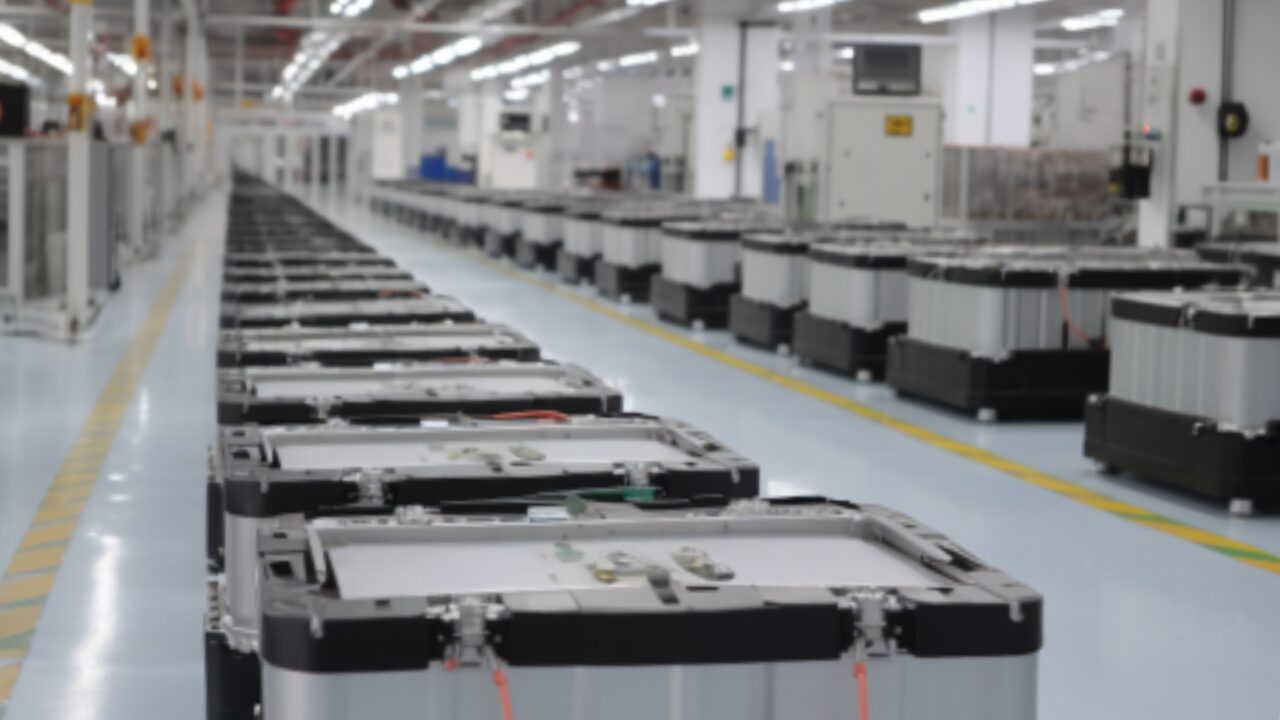Get up to speed with the latest positive developments in the EV world! Hear about the deal near completion for a UK electric car battery factory, overstaying fines at charge points and revolutionary battery technology for a 620-mile range.
UK’s Multi-Billion Pound Electric Car Battery Factory Deal Nears Completion
A multi-billion pound deal to construct a new electric car battery factory in the UK is nearing completion. The facility, set to be located at Gravity business park in Somerset, would be dedicated to Jaguar Land Rover (JLR).
This project has the potential to generate up to 9,000 jobs in the Bridgwater area, conveniently situated near the M5 motorway. The British government has engaged in advanced discussions with JLR’s parent company, Tata and Chancellor Jeremy Hunt has reportedly offered incentives to secure the deal.
Although Somerset faces competition from European locations, financial subsidies and incentives from the UK government have positioned it favourably. While there is growing optimism that Somerset will be chosen as the location for Tata’s battery plant, no final decision has been confirmed.

Gigafactories are in high demand worldwide to meet the expected surge in battery requirements as countries move towards banning petrol and diesel engines. The UK government is under pressure from automakers to bolster battery production capacity within the country to prevent car manufacturing plants from relocating.
The urgency to secure battery manufacturing in the UK has been recognized by the Chancellor, who has indicated the government’s willingness to offer significant incentives.
Overstaying at Charge Points May Result in Fines
Electric car drivers in the UK are being advised to keep an eye on their charging time to avoid fines at public charge points. LeaseElectricCar.co.uk experts are warning owners that overstaying at these locations may result in penalties.
Bradford, Glasgow and Sheffield have already implemented overstaying charges, with fines of £10, £30 and £20. More cities across the country are expected to follow suit due to the rapid increase in electric vehicle (EV) ownership surpassing the development of sufficient charging infrastructure.
Councils have been prompted to address the issue of extended stays at charging spaces, which prevent others from accessing the facilities. Tesla charge points have already been issuing fines of 50p per minute, rising to £1 per minute when all other devices are in use.

This has amplified the need for the government to fulfil its promise of installing 300,000 new public charge points across the country by 2030, as current reports suggest the UK is falling short of this target.
If the focus was on installing more rapid charging devices for public use, it would eliminate the need for local authorities to resort to imposing fines and penalising the efforts of those who have already switched to electric vehicles.
Battery Startup Aims to Transform Vehicles with 620-mile Range
Chinese battery supplier Gotion High Tech has set an ambitious goal to become the first to mass-produce EV batteries with a range of 620 miles. The revolutionary L600 LMFP Astroinno battery is planned to commence production in 2024.
The lithium-manganese-iron-phosphate (LMFP) battery has successfully passed safety tests and has a life cycle of 4,000 charge-discharge cycles, making it a viable option for everyday use and thus surpassing the average lifespan of a car.
Gotion High Tech has invested a decade of in-house research to make this technology commercially viable. The company’s breakthroughs in chemical systems have been crucial to improving the energy density of mass-produced LFP batteries.
The battery has also reduced the number of structural parts by 45% and the lowered weight makes it a third lighter.

This groundbreaking battery technology has the potential to revolutionise the EV industry, providing extended-range capabilities and enhancing the overall efficiency of electric vehicles. You can read more about advances in battery technology in our blog here.
Council Uses Solar Power and Repurposed EV Batteries for Sustainable Energy Storage
North Tyneside Council, supported by the European Regional Development Fund, is finding innovative ways to harness and utilise solar-powered energy in their transition to electric vehicles (EVs).
With the installation of a solar PV array and carports, the council can generate 700 kilowatts of electricity, producing around 600,000kW/h annually. To address the challenge of excess energy during daylight hours, Connected Energy has introduced its battery energy storage system (BESS) called E-Stor.
The system repurposes batteries from end-of-life electric vans, providing a second life for these batteries while enabling the council to store and utilise the excess electricity generated by their solar panels. The stored energy can be used to charge the council’s electric vehicles overnight, reducing electricity bills and carbon emissions.
The council plans to further enhance their EV infrastructure by installing more EV chargers in the coming months and aims to have an all-electric fleet.
